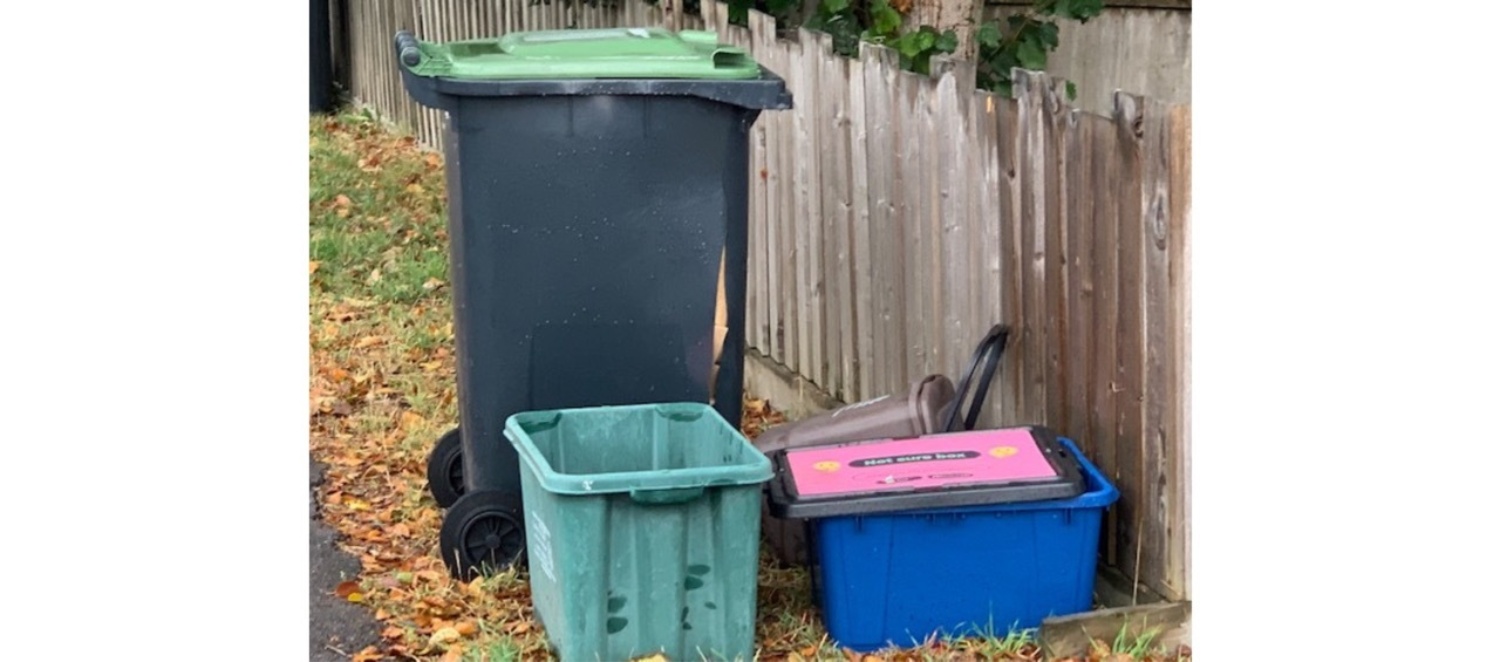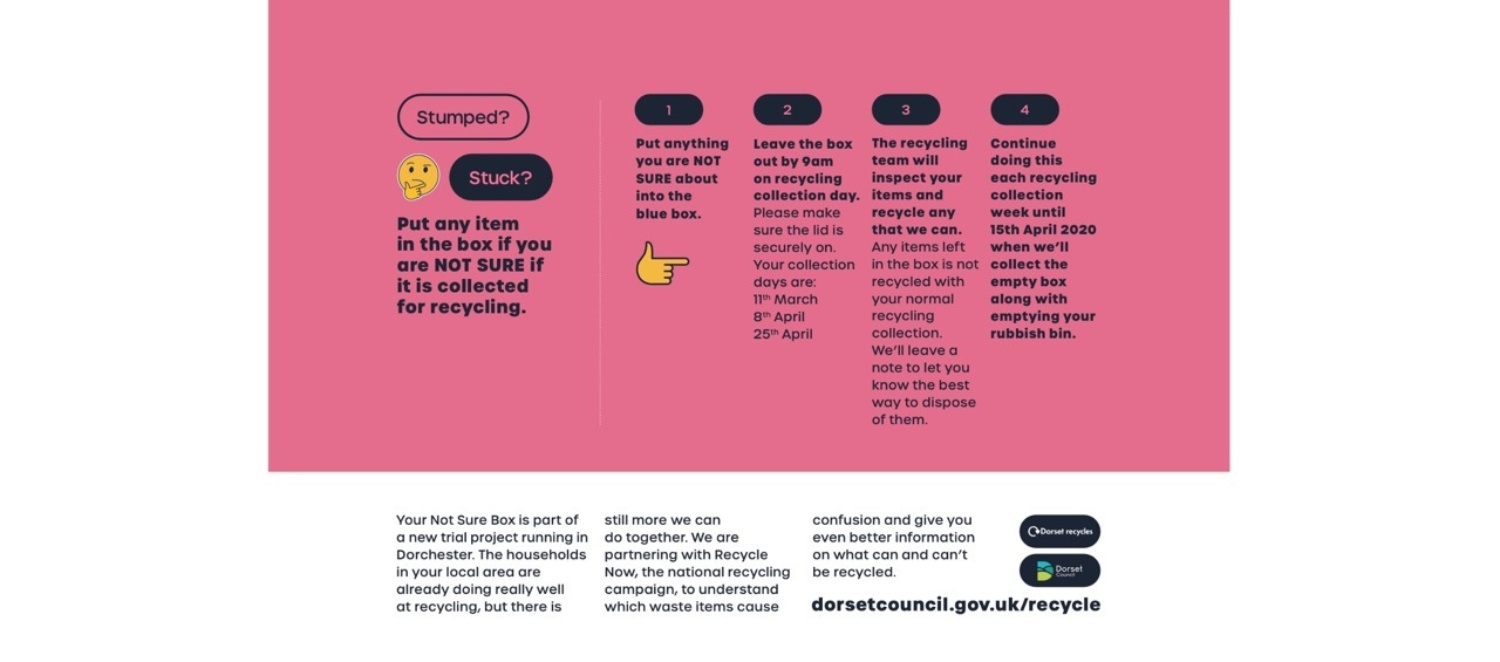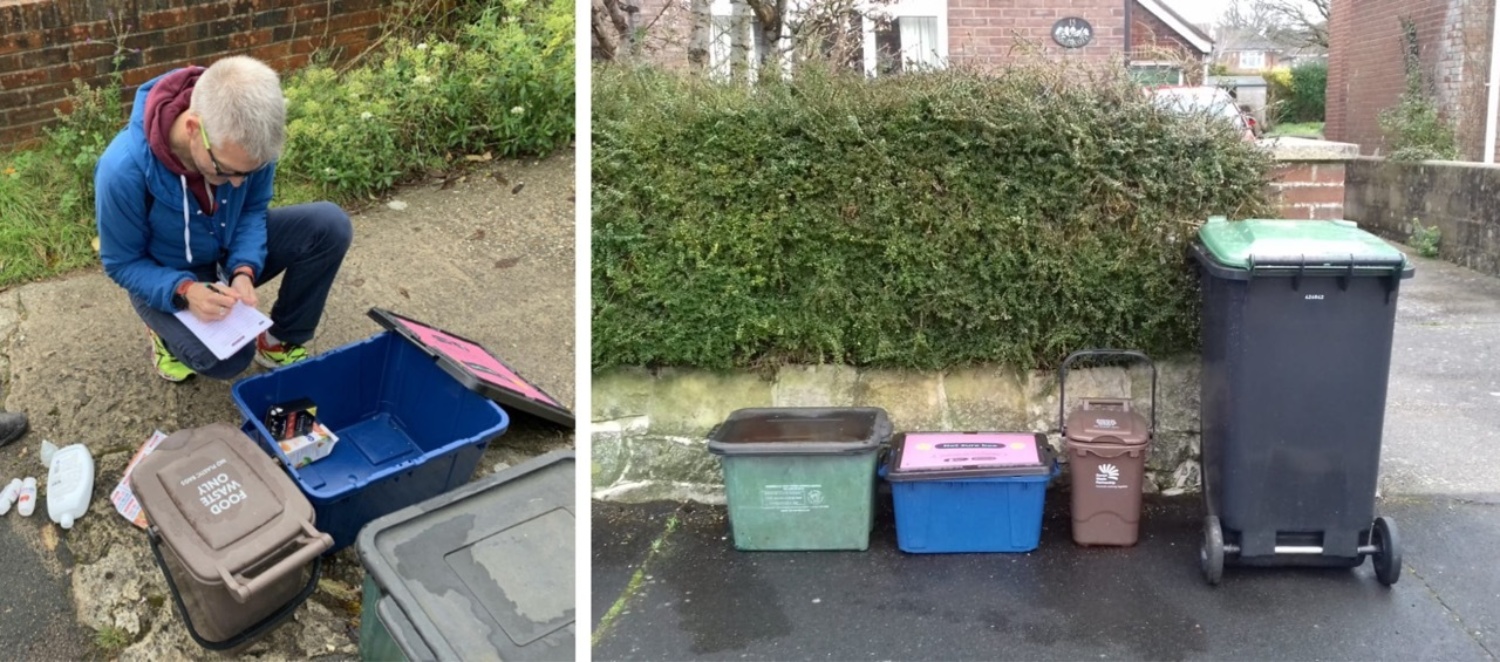Background
The Not Sure Box is an innovative intervention which provides people with direct and timely feedback on items they are unclear about when recycling - ultimately reducing contamination. In partnership with WRAP, we delivered a trial of the box in 2020 with Dorset Council, in which the intervention reduced recycling contamination by almost half.
Insight
Recycling contamination, where items which aren’t recyclable are put in recycling, has increased by six percentage points since 2017 (WRAP Spring 2024 Recycling Tracker). Today, 82% of households are incorrectly recycling at least one item, with the most frequently cited reason being uncertainty about what is or isn’t allowed.
For consumers, the recycling landscape can be confusing with contradictory messages about what is and isn't recyclable found on packaging, online and in the opinions of friends and family. Without support, many struggle to recycle correctly and also lose confidence in their ability to do so. Only 9% of citizens feel ‘very confident’ about what they can and can’t recycle, whilst the majority are only ‘mostly confident’, suggesting widespread uncertainty exists. Typically, comms campaigns are used to address contamination, but a one-size-fits-all approach is ineffective where citizens have individual waste habits and are confused about different items. This knowledge gap leads to high contamination rates that aren’t being addressed.
Intervention
Behavioural science tells us people are more likely to engage with messaging or feedback that feels tailored to them, rather than something that feels broad or generic. With this in mind, we identified an opportunity to improve home recycling systems by designing an intervention that:
- Enables people to get specific feedback about what they can and can’t recycle kerbside
- Is more immediate and disruptive than passive communications such as leaflets
- Gives us greater insight into where confusion arises so that it can be targeted in future
We drew on several behavioural tools to design our intervention:
- Personalisation
- Salience
- Feedback
- Right place, right time
The result was The Not Sure Box (NSB) - a simple addition to an existing recycling service that provides timely and specific feedback to help people work out what they can and can’t recycle.

Implementation
We trialled the NSB with 196 households in Dorset, in an area where engagement with recycling was already good, but there was still room for improvement. Residents received a NSB with instructions to put any items they weren’t sure about in the box when recycling over the space of 3 collections.

During the trial, council officers worked ahead of the collection crew to sort through the Not Sure boxes - recyclable items were put in the recycling bin ready for collection, whilst the non-recyclable items were left with feedback for how to correctly dispose of them. After 3 recycling collections, the NSB was collected and could be reused with another household.

Insights from the NSBs were used to develop a more personalised and relevant final communication for residents involved in the trial. This included information about the items people in the local area were most commonly not sure about, and tips for how to dispose of them in the correct way. The most common inclusions in the box were plastic items (like food trays, plastic film, and wrappers), Tetrapak, and aluminium foil - revealing the materials people are most confused about.
Impact
To evaluate our trial, pre and post recycling waste composition analysis was conducted on a sample of 50 households. A follow up survey was also sent out to all residents to identify knowledge gaps, obtain feedback and capture demographic information.
A significant reduction in recycling contamination was found among users of the Not Sure Box (45.8%) compared to non-users (2.6%)
- The NSB was used by 58% of households who received the service - many of which used it on multiple occasions. This validates the national data showing high levels of confusion with the recycling system
- This also confirms the intervention was engaging and intriguing enough to lead to a positive disruption of recycling habits
- Performance was most improved for plastics and paper & card, mirroring the dominant inclusion of these items
- 76% of users of the NSB rated it as either ‘helpful’ or ‘very helpful’
If you’d like to trial the Not Sure Box in your area, get in touch with our team at info@behaviourchange.org.uk